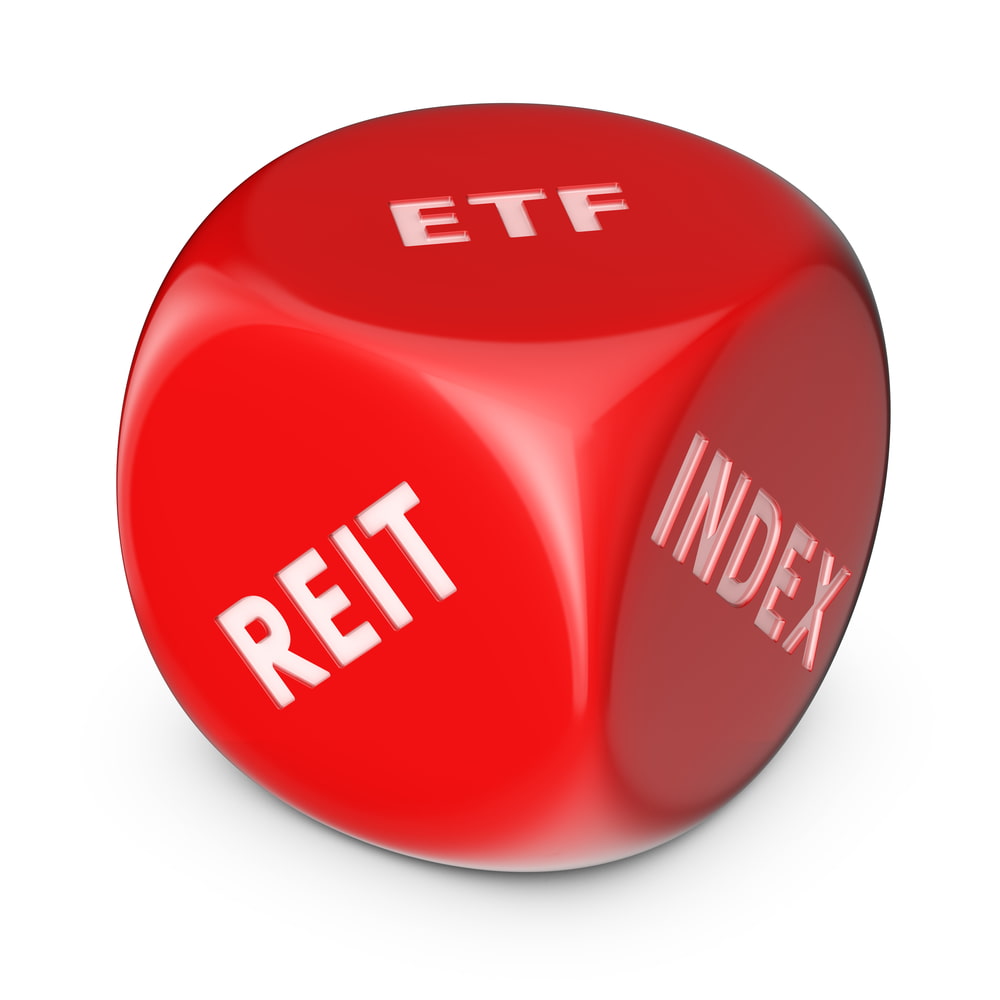At first glance, real estate investing might seem impossible to break into. For most people, their house is the most valuable thing they own. Between taxes, repairs, and maintenance, it can be expensive to own a home! How are you supposed to afford an investment property?
Real estate investment trusts (REITs) are a solution to that problem. An REIT is a company that owns and develops real estate. Different REITs specialize in various types of properties, such as apartments, commercial properties, hotels, offices, and industrial spaces.
REITs are required by law to disburse 90% of their taxable income in the form of shareholder dividends, and the business is heavily regulated by the SEC.
When you buy shares in real estate funds, you don’t purchase ownership of the property. But it’s effectively the same thing since you get a cut of the profits from the property. Alternatively, you can invest in an ETF or mutual fund that includes REITs in their portfolio. That’s what we’re about to look at today.
[ Thinking about investing in real estate? Register to attend a FREE online real estate class and learn how to get started investing in real estate. ]

Top 5 Real Estate Funds For Investors
Before we get into any specific funds, let’s talk about what makes one real estate fund better than another. With so many ETFs out there, how do you choose the one that’s right for you?
To begin with, steer clear of brand-new funds or ones with limited capital. Avoid any funds that haven’t been around for at least a year. They should also have at least $100 in assets, and they shouldn’t be heavily leveraged.
It’s also best to avoid actively-managed funds. They’re not bad if you’re a dedicated investor who loves watching the market. But if you want a long-term passive investment, a passively-managed fund is a far superior choice.
Beyond that, you should look at the following factors:
-
Expense ratio
-
Tracking error
-
Bid to ask ratio
-
Diversification
Expense ratio and the tracking error are the more important factors because they relate directly to a fund’s financial health. Bid to ask ratio and diversification are secondary, but they’re still an important consideration.
Now that we know what we’re looking for, here are five of the best real estate funds for investors.
iShares Core US REIT ETF
The iShares Core US REIT ETF is designed to track the FTSE NAREIT Equity REITs Index. It invests a minimum of 80% of its funds into assets that are either part of the NAREIT index or virtually identical to those assets.
It invests in the majority of real estate classes, except timber, mortgages, and infrastructure. As such, it has somewhat of a strong focus on REITs that invest heavily in commercial and rental properties.
Real Estate Select Sector SPDR®
The Real Estate Sector SPDR is designed to track another index, the Real Estate Select Sector Index. In this case, at least 95% of the fund’s assets are invested in REITs that are part of that index.
This is both a good thing and a bad thing. On the one hand, the index is one of the better-performing indexes out there, so it’s a good one to track. On the other hand, it’s not terribly diverse. If non-mortgage REITs take a downturn, the entire fund will go down with them.
Schwab US REIT ETF™
The Schwab US REIT ETF is meant to track the Dow Jones Equity All REIT Capped Index. This index is comprised of non-mortgage, non-hybrid REITs. In other words, the REITs only invest in their own properties and don’t participate in lending.
The Schwab ETF tracks the Dow index very closely. That’s only natural since a minimum of 90% of its assets are part of that index.
Vanguard Real Estate ETF
The Vanguard Real Estate ETF tracks the MCSI US Investable Market Real Estate 25/50 Index. This index is comprised not just of REITs but other real estate investments. Most of the fund’s assets are invested via a subsidiary company that does the actual investing. Since this ETF includes more than just REITs, it’s a bit less vulnerable to short-term market shifts.
Fidelity® MSCI Real Estate ETF
This ETF is designed to track the MSCI USA IMI Real Estate 25/25 Index, and a minimum of 80% of its assets are invested in that index. This index, in turn, is intended to track the broader real estate sector.

Real Estate Funds Vs. REITs
Before we wrap up, let’s discuss what separates a real estate fund from an REIT.
An REIT is a company that invests in profit-earning properties and distributes its profits to investors. Investors purchase shares in the company, similarly to how you buy stock in other companies.
A real estate fund, on the other hand, is a fund that owns shares in multiple REITs. Either one is ultimately involved in real estate, but there are some differences. Here are some of the others:
-
REITs trade on exchanges like stocks do. The prices are updated throughout the day and are constantly changing. They’re also highly liquid, and high-volume trading is the norm.
-
Real estate funds are traded via online brokerages, or you can buy them from the institution that created them. Share prices only update once a day, and trading is less liquid.
-
You earn money from REIT investments in the form of shareholder dividends. Share prices themselves are typically stable.
-
Real estate funds are designed to grow in value over time. They won’t provide passive income like an REIT, but they’re better long-term investments.
Summary
As you can see, real estate funds or ETFs can make great additions to your portfolio. Since they tend to grow in value along with the real estate market, they’re tied to one of the most reliable market sectors.
At the same time, it’s essential to tread carefully. Before investing, research multiple different funds and ensure you’re buying into one that matches your investment philosophy. In investing, there’s no such thing as a guarantee. But investing in the right fund is a good start.
Ready to start taking advantage of the current opportunities in the real estate market?
Click the banner below to take a 90-minute online training class and get started learning how to invest in today’s real estate market!


